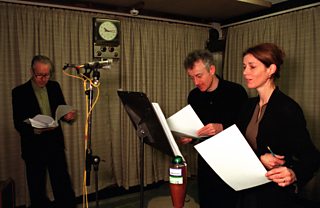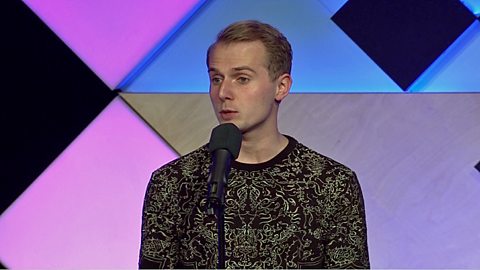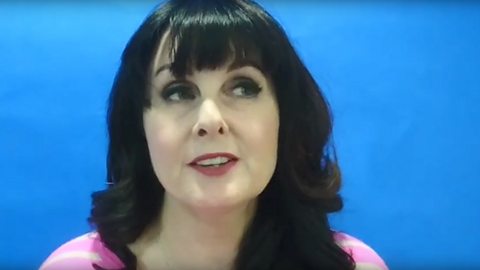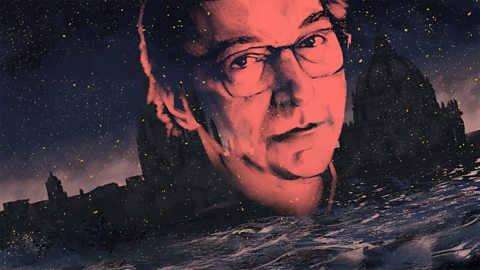Bbc Club Creative Writing
Telling tales
We all grew up writing stories, yet it's a form of creativity many of us leave behind in adulthood. From blogging to script writing; poetry to playwriting, there are plenty of options for aspiring writers with a story to tell.

If writing appeals then think about what you want to achieve. Do you want to share something personal, by expressing yourself with poetry? Do you want to try and entertain, challenge, engage people emotionally, by telling a story in script form? Those who write scripts for TV or radio work to strict formats in terms of structure and length, and wouldn't describe what they do as creative writing. It's also worth thinking about whether you want to involve others in the process. Writing a book or poetry is very internal, a more intimate experience. Whereas if you want to do more than simply write a script, it becomes a collaborative process. Whatever your aim, set yourself a target, and write! Think about what matters to you. Why do you want to write about it? That way you are writing from the inside out.
There's no need to share the results until you feel ready. But once you do, you'll find writing groups are a great way to get inspired and meet people too. Who knows how your story will end?
| Why get into writing? | Can it be inexpensive? | Is there a family option? |
|---|---|---|
| We've all got stories to tell and writing is an obvious way to share them, whether that means sharing your thoughts and feelings via prose or poetry, or by attempting to tell a story through a script | Definitely. All you need is your imagination… | Dream up a short story synopsis and get the family to each write their own version, then compare the results. Or you could up the ante by entering writing competitions. There could be a star among your clan |
What would you like to try?
Get blogging

If you get as far as submitting a manuscript to publishers, don't be disheartened if you are rejected, 12 publishers rejected Rowling!
Some of the biggest books now start as blogs, and blogging is a brilliant way to hone your craft as a writer. Julie Powell, a frustrated, unpublished author, came up with the idea of attempting to cook all 524 recipes in Julia Child's 1961 cookbook Mastering the Art of French Cooking. The resulting blog became a hit book, and later a film, Julie & Julia. Then there is vlogging, which can also lead to print, as proven by the success of YouTube sensation Zoella, aka Zoe Sugg. Her first novel Girl Online, became the fastest-selling book of 2014 after shifting over 78,000 copies in its first week.
We haven't all immersed ourselves in classic literature or drama. Many young people today head to technology first without thinking of picking up a book for inspiration. If sitting down to pen your seminal novel feels daunting, why not have a go at blogging. Find your voice and your style. If the results end up as a book that's great. But if they never make the jump from screen to page that's fine too. What matters is that you are writing.
Write a book
They say that everyone's got a book in them. Maybe it's time to find out! Look around you for inspiration; perhaps an item on the news or a newspaper story will spark something. Look around you; think about that conversation you heard on the bus…
Or think about what you like to read and watch. EL James's bestselling Fifty Shades Of Grey trilogy started out as online 'fan fiction' inspired by the characters in the Twilight stories. You might need to put aside time to actually do the writing, but scribble ideas down when they hit you. JK Rowling was stuck on a delayed train when she came up with the idea of Harry Potter. If you get as far as submitting a manuscript to publishers, don't be disheartened if you are rejected, 12 publishers rejected Rowling! While you are waiting to be discovered, why not self-publish? It's a booming market with 18m self-published titles sold in 2013, a rise of 79% in a year. Neuroscientist Lisa Genova wrote Still Alice, the story of a 50-year-old Harvard professor who struggles with early onset Alzheimer's disease, and had the book rejected several times before deciding to self-publish. Glowing reviews followed, a major publisher took the book on, and now the story has become a hit film. Yet self-publishing isn't a new phenomenon. Beatrix Potter's The Tales of Peter Rabbit was rejected several times. She self-published in 1901 and the next year, one of the publishers who had initially rejected the manuscript published it and 22 more of her books over the next 40 years.
Write poetry
Poetry is a great way of expressing yourself through words. You needn't be daunted – remember a limerick is only five lines. There are numerous styles of poetry, with conventions in terms of length, verses and rhyme. However that doesn't mean you have to follow rules. Do you want to write for children or adults? If writing for children appeals, investigate the work of writers like Michael Rosen. The author of 140 books, he was appointed as the fifth Children's Laureate in June 2007, succeeding Jacqueline Wilson. Another inspirational modern writer to look at is dub poet, playwright and author Benjamin Zephaniah, who has written hugely successful works for children.
Among poets writing today, the work of Carol Ann Duffy, Wendy Cope and Simon Armitage might inspire you. Go online or to the library and immerse yourself in poetry, then find your own voice. Do you want to your poetry to be read or performed? Check out local arts centres, libraries or pubs for details of poetry readings and workshops. Find your groove - you could be a poet, but you didn't even know it…
Write for radio
Writing for radio is a great challenge, as it's all about the words. To start with, decide whether you want to try your hand at drama or comedy. You'll find the BBC Writersroom a mine of useful information. Learn how much to write with tips on what length radio programmes run to, and head to the interviews and blogs with radio bosses and successful writers for advice on finding your voice, what works and what doesn't. If you think you've found your niche there is also information about how to submit your script for consideration. Go to the BBC's Writersroom to learn more about making the jump from reader to writer.
Write for stage
Writing a stage play can be as ambitious as you choose to make it. Limit the number of parts, and if you can, stick to one location. Should anybody want to perform your work, set changes and a huge cast may put them off, for purely practical reasons. Read the work of playwrights for inspiration and to get an idea on script length. You should keep your full-length script to about 100 pages, which equates to about 1 and a half hours of stage time. For a one act play divide that by two, and if you are writing a ten-minute play, your script should be from 10-15 pages. But try not to copy other writers' styles, originality is key. Maybe start by writing a monolgue for one character. As Alan Bennett proved with his Talking Heads – first on TV, then on stage - get the words right and a single performer sitting still can keep an audience gripped.
Write for TV
For many of us, more so than books or poetry, TV writing is something to which we are exposed to on a daily basis. So if the idea of TV scriptwriting appeals, but you are stuck for a plot, why not get warmed up by trying to write an episode of a TV show you already watch? With a drama or soap that you know and love, the characters will already be familiar, you've just got to decide what they're going to do, where and with whom.
Then when you are ready to create your own TV show, think about the format for your idea. Would it be a soap, in 30-minute episodes? A pre-watershed 60-minute single drama? Or maybe you think a sitcom might suit you best. Knowing what kind of script you are aiming for is crucial, you've just got to remember to make the story and characters your own! Again, head to the BBC Writersroom for a wealth of invaluable advice on getting started and maybe ultimately getting commissioned. Could you one day be penning your very own 'doof doof' EastEnders cliffhanger?
Poetry by George

The 24 year old rapper, poet and Cambridge graduate talks to Front Row about Search Party, his debut collection and how he hopes it can help inspire other young people
Rhyme and reason to try poetry

Revisiting writing
David Penny, Gloucestershire: In my 20s I had a short story published, then four sci-fi novels. I thought this is it! I had the agent, the publisher…But there is virtually no money in writing unless you are Stephen King. So I sort of stopped and discovered real life, used my creativity in other areas. I got into computer software and ran a company for 30 years.

If I hadn't started writing again I would be wondering what to do
I had a mid-life crisis or something and realised that time was running out. That's when I started messing round with ideas that felt like they could have been books.
Eventually I created a character, Thomas Berrington, an Englishman who accidentally finds himself dragged across to France and involved in the final battle of the 100 Years War. He ends up in Spain, settling in Granada. I've brought out the first novel, The Red Hill, and the second should be out in April. I have another 9 books in the series planned, as I know it will end in 1492, and I've already written a final scene!
Second time around I know I am just too impatient for the traditional publishing route, so chose to self-publish instead.
I work harder now on the writing than I did towards the end of my time running the company. And writing is the kind of career that you don't give up – writers die at the keyboard. If I hadn't started writing again I would be wondering what to do. I'd probably still be working, I couldn't sit around doing nothing.
BBC Writers Room
Marian Keyes: top three writing tips

Philip Pullman's tips for writers

- Sally Taft
Get Creative's content producer rolls up her sleeves and threw a pot for Hey Clay!
- Kenneth Small
The retired tool-maker who gave the Jubilee Thames Pageant sunny skies
- Kate Simner
The contracts administrator with creativity at her fingertips
- Kirk Crosby
DIY toymaker father creates kingdoms from clutter
- Cindy Huntley
Paperback perfection: the school worker who sculpts art from stories
- Patryk Sadowski
Photographer uses real life locations to create futuristic scenarios
- Gary Cummins
Construction worker recreates day job in miniature
- Anneka Gamble
Bake Off's back. How sugarcraft can be the icing on the cake.
- Ron Hinkson
How a painter turned five church windows into a Renaissance masterpiece
- Jean Samtula
One of a handful of aspiring artists whose painting was chosen for the Royal Academy's Summer Exhibition
- David Martin
A retired designer who painted a Canaletto-style painting, replacing the buildings with those of his home town
- Robert Burns
A retired decorator gave his home a Renaissance make-over
- Maria Lyon
A crafter who loves creative challenges of all shapes and sizes
- Rachel Blunden
A spinner who takes her spindles wherever she goes, including an FA Cup Semi-Final
- Kenneth Small
A retired tool-maker who painted a life-size Canaletto replica
- Bev Cain
A crafter who didn't think drawing would be her forte but had a go anyway
- David Colbert
A former teacher who went looking for a hobby and found the ukulele
- Emily Auger
A jewellery designer who discovered a love for digital printing and uses it as a way to relax and to cure jet-lag
- Cheryl Lloyd
A dedicated mum and knitter who makes retro tank tops for her rugby- mad son and his friends to add a splash of style to the stands
- Rachel Orchard
A stitcher who joined a sewing group to meet like-minded people. She's made tea cosies and draught excluders as gifts and hopes to move to dressmaking
- Peter Egriega
A stroke survivor who has used painting, music and writing to rehabilitate. He shared his first self-portrait using his affected hand with Get Creative
- Sally Taft
A keen cross stitcher and crafter who uses it as a way to relax and wind down after a day content producing for Get Creative
Source: https://www.bbc.co.uk/programmes/articles/2nhZjM53HJDy38Hn8Qxp03r/telling-tales
0 Response to "Bbc Club Creative Writing"
Post a Comment